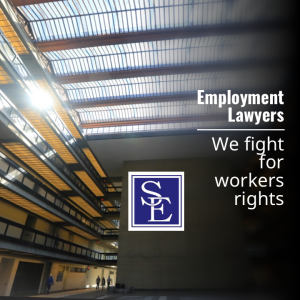Defenders of labor rights face an uphill battle addressing the widespread abuses facing workers around the world. Most industrialized nations have legal protections in place establishing standards for labor conditions, but in many parts of the world this is not the case. In our globalized economy, corporations in industrialized nations take advantage of this reality and set their manufacturing and production operations to those nations, to access relatively inexpensive labor. In the worst of these cases, workers have no protections whatsoever, and live in slavery. Recently, a United States federal court took a step to hold some of these companies responsible, for being at least complicit in a system supported by slavery, as the court put it in “receiving cocoa at a price that would not be obtainable without employing child slave labor.”
Last month the Ninth Circuit Court of Appeals reversed the decision of a California District Court Judge’s in the case John Doe I, et. al. v. Nestle, S.A., et. al. In this case, the unnamed plaintiffs allege that a group of corporate defendants in the business of processing cocoa beans were complicit in a system of widespread child slavery that occurred on cocoa plantations in the Republic of Côte d’Ivoire, a nation on the West African coast. The plaintiffs in the case, identified only as John Doe’s I–VI, allege that they were victimized by these companies and the decisions those companies made in pursuing profits, up to and including condoning the use of child slave labor on the plantations of their cocoa suppliers.
The defendants in this case, Nestle, Cargill, and Archer Daniels Midland, are each large multinational corporations and are among the world’s largest manufacturers, purchasers, processors, and retail sellers of cocoa beans. The plaintiffs are not U.S. citizens, but were able to file their suit in U.S. Federal Court on the basis of the Alien Tort Statute, or the “ATS.” That statute, originally passed in the Judiciary Act of 1789, provides original jurisdiction to the federal courts for foreign citizens to seek redress for harms suffered as the result of a tort committed in violation of the law of nations. Among other torts, courts have found torture, genocide, war crimes, and slavery to be actionable under the ATS.
 Under the FWW method of calculating over time, it is permissible for an employer to calculate a non-exempt employees’ wages in the following way:
Under the FWW method of calculating over time, it is permissible for an employer to calculate a non-exempt employees’ wages in the following way: New Jersey Employment Lawyers Blog
New Jersey Employment Lawyers Blog

